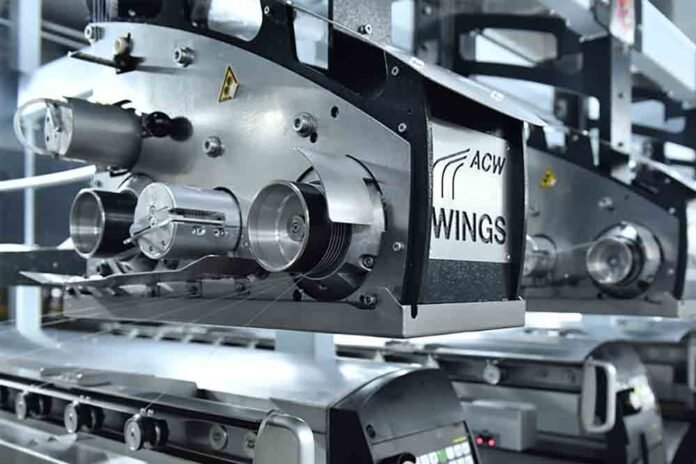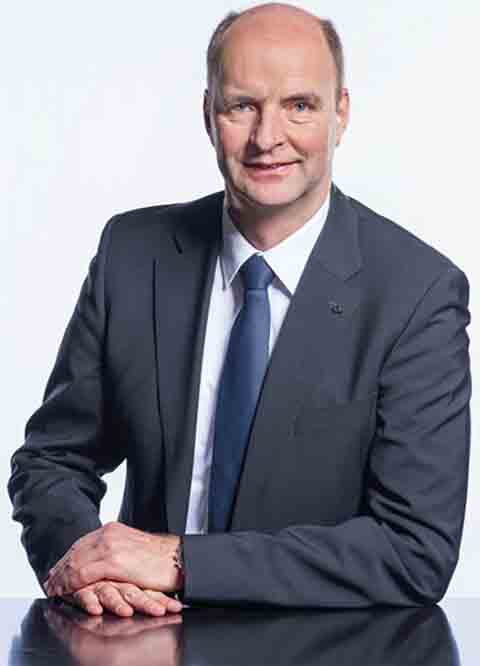Oerlikon Group participated focusing on current challenges that the entire textile industry must deal with at ITMA. This includes creating a circular economy within the textile value chain, providing energy-efficient technologies, using digital solutions to support a sustainable production, processing new materials and finally the traceability of all products and the recycling of raw materials used. At its 500sqm booth Oerlikon presented its technology solutions within its innovative experience centre.
Georg Stausberg, CEO of the Polymer Processing Solutions Division and chief sustainability officer of the Oerlikon Group, says: “At Oerlikon, we contribute with our innovative technologies for resource-saving use in almost all man-made fibre spinning mills in the world. Our promise for the future is to continue to expand the zero-waste production approach and thus take care of achieving our customers’ and our own sustainability goals.”
Circular economy and recycling
Oerlikon is involved with Worn Again Technologies, a technology company that is developing unique polymer recycling processes that will enable textiles and polyester packaging resources to be kept in constant circulation. The partnership with the British company focuses on a solvent-based recycling technology, with which both end-of-life textiles comprising polyester and polycotton blends and PET plastics can be converted into circular raw materials and fibres (polyester and cellulose). For this, a large demonstration system for upcycling 1,000 tons of textiles per annum is being created in Switzerland.
Also, Oerlikon Barmag offered technological solutions for rPET that enable customers to save millions of tons of CO2 per year. In 2022, Oerlikon Barmag introduced, a homogeniser recycling line specifically for customers in China and Asia where bottle flakes and film waste can be agglomerated, extruded, homogenised and melted to produce polymer melt or chips. It enables the polymer quality of recycled bottles or film waste to be precisely adjusted to the requirements of different downstream extrusion or injection molding processes, the company said.
Another rPET solution is the VacuFil system from the Oerlikon Barmag joint venture, BB Engineering. VacuFil is a unique PET recycling line, uniting gentle large-scale filtration and targeted intrinsic viscosity (IV) regulation for consistently outstanding rPET melt quality. In 2022, BB Engineering launched a patented key component of the VacuFil system, the Visco+ filter as a separate and easily integrable upgrade component that enables precise IV setting and pure melt with the help of vacuum. IV is the central quality characteristic in PET recycling and rPET processing. It determines the melting performance in the production process and the properties of the end products and is thus essential in the recycling process, Oerlikon said.
Energy efficiency
Oerlikon Neumag unveiled its new EvoSteam process which, according to the company, is viewed by many process experts as an enabler for more sustainable staple fibre production in the future. The objective of the new development is to lower both operating expenses (OPEX) and the carbon footprint with minimal consumption of energy, water and polymer – simultaneously with the excellent fibre qualities demanded by downstream processes and high production volumes.

Oerlikon Barmag digital twin
At ITMA, Oerlikon Barmag presented a complete WINGS POY winding head as a kinematic model digital twin. For this purpose, all essential machine components were modeled as rigid bodies and connected to each other via joints and contact bodies. The actuators present in the real world were simulated by forces and moments. Analogously, the sensors are simulated by contact bodies and corresponding collision bodies. With this kinematic model, it is now possible to map all the processes that occur during the operation of a winding head in virtual space. Customers can thus be offered faster and more cost-effective production solutions, says Oerlikon.
The company’s Digital Academy learning content is available for the Oerlikon Neumag BCF S+ and BCF S8 systems from ITMA onwards. Further content will be continually expanded and made available to all customers.
Oerlikon Barmag ACW WINGS
Additionally, Oerlikon is showcasing its long-awaited ACW WINGS drawing fields upgrade. The technology replaces Oerlikon’s WINGS system. At ITMA the technology is being shown for the first time in hybrid way – a WINGS drawing field in combination with virtual ACW Winder.
Oerlikon Barmag Wiping Robot
Regular wiping of spin packs is important for process stability and yarn quality. Automating the process with Oerlikon Barmag’s wiping robots, which can be retrofitted to numerous spinning plants, delivers considerable benefits. This is because, according to Oerlikon, it reduces the yarn break rate by up to 30%, improves process stability and reduces downtime. In addition, wiping robots help to indirectly reduce waste due to a 90% decrease in the use of silicone oil spray cans and a 15-20% decrease in total silicone oil consumption, the company adds.




